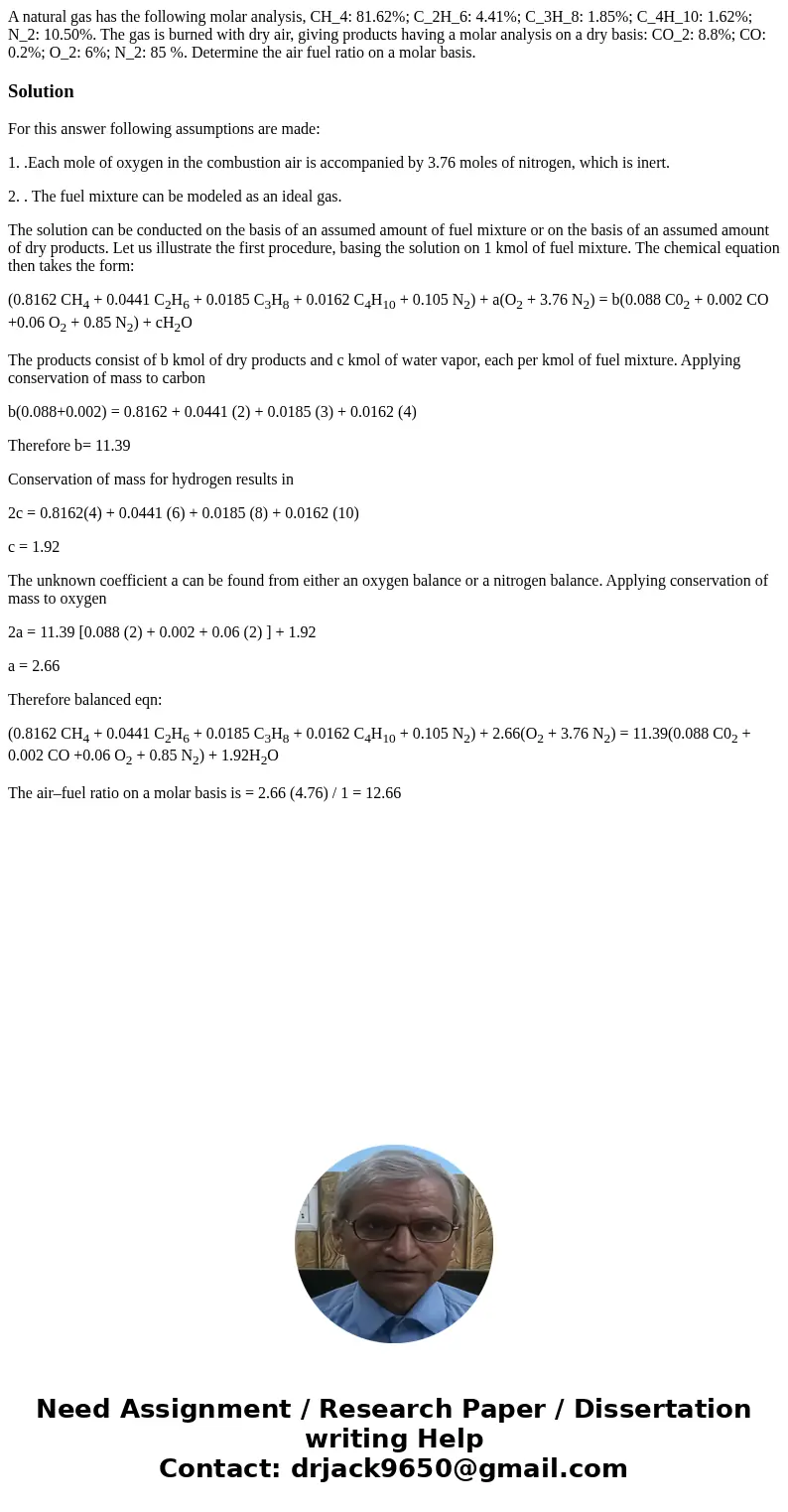A natural gas has the following molar analysis CH4 8162 C2H6
Solution
For this answer following assumptions are made:
1. .Each mole of oxygen in the combustion air is accompanied by 3.76 moles of nitrogen, which is inert.
2. . The fuel mixture can be modeled as an ideal gas.
The solution can be conducted on the basis of an assumed amount of fuel mixture or on the basis of an assumed amount of dry products. Let us illustrate the first procedure, basing the solution on 1 kmol of fuel mixture. The chemical equation then takes the form:
(0.8162 CH4 + 0.0441 C2H6 + 0.0185 C3H8 + 0.0162 C4H10 + 0.105 N2) + a(O2 + 3.76 N2) = b(0.088 C02 + 0.002 CO +0.06 O2 + 0.85 N2) + cH2O
The products consist of b kmol of dry products and c kmol of water vapor, each per kmol of fuel mixture. Applying conservation of mass to carbon
b(0.088+0.002) = 0.8162 + 0.0441 (2) + 0.0185 (3) + 0.0162 (4)
Therefore b= 11.39
Conservation of mass for hydrogen results in
2c = 0.8162(4) + 0.0441 (6) + 0.0185 (8) + 0.0162 (10)
c = 1.92
The unknown coefficient a can be found from either an oxygen balance or a nitrogen balance. Applying conservation of mass to oxygen
2a = 11.39 [0.088 (2) + 0.002 + 0.06 (2) ] + 1.92
a = 2.66
Therefore balanced eqn:
(0.8162 CH4 + 0.0441 C2H6 + 0.0185 C3H8 + 0.0162 C4H10 + 0.105 N2) + 2.66(O2 + 3.76 N2) = 11.39(0.088 C02 + 0.002 CO +0.06 O2 + 0.85 N2) + 1.92H2O
The air–fuel ratio on a molar basis is = 2.66 (4.76) / 1 = 12.66

 Homework Sourse
Homework Sourse